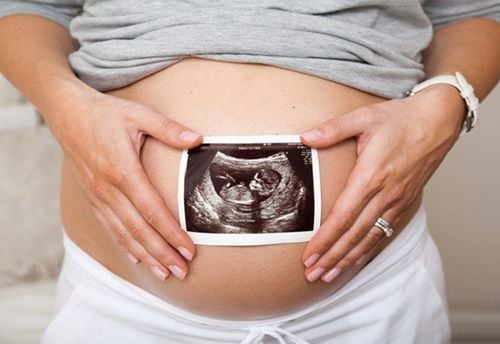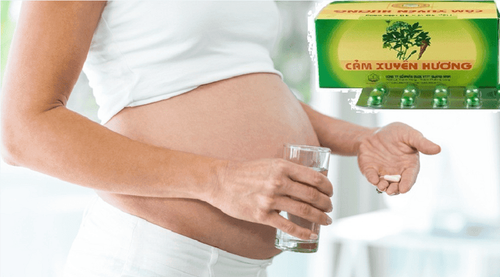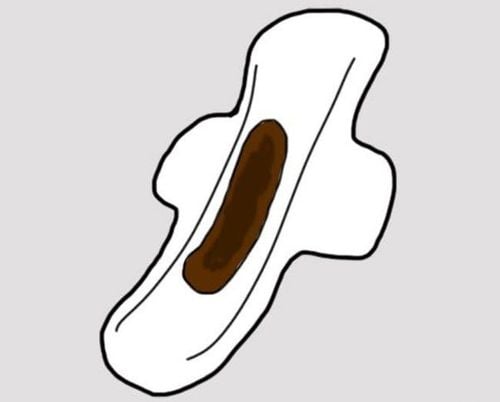This is an automatically translated article.
The article was professionally consulted with Specialist Doctor I Le Thi Phuong - Obstetrician and Gynecologist, Vinmec Ha Long International General Hospital.Pelvic inflammatory disease occurs when bacteria enter the vagina and cervix into the uterus, ovaries, or fallopian tubes. Pelvic inflammatory disease during pregnancy can seriously affect the condition of mother and baby.
1. What is pelvic inflammatory disease?
Pelvic inflammatory disease is an infection of the female reproductive organs. It occurs when bacteria enter the vagina and cervix into the uterus, ovaries, or fallopian tubes.2. Causes of Pelvic Inflammation
Sexually transmitted diseases : Gonorrhea and Chlamydia . These diseases can cause vague symptoms or even no symptoms. However, after a few days to a few weeks, if left untreated, it can progress to pelvic inflammatory disease. Causes of non-sexually transmitted infections: Bacterial vaginosis,... Women during pregnancy are prone to pelvic inflammatory disease for a number of reasons:
A woman's body changes during pregnancy. Many hormonal changes, stress, and reduced resistance make it easy to get sick. During pregnancy, there is a lot of discharge, if not cleaned properly, it will create an environment for fungi and bacteria to grow, causing many diseases. In particular, do not douche because it will create conditions for bacteria causing pelvic inflammatory disease to grow more easily, and can push bacteria from the vagina into the uterus and fallopian tubes. People who have had a miscarriage, abortion or multiple births. Having unprotected sex can also lead to infections.
3. Symptoms of pelvic inflammatory disease
The symptoms of pelvic inflammatory disease are often quite vague and atypical, even, in some cases, only mild symptoms or even no symptoms.
Some signs of vaginitis:
Pain in the lower abdomen, back pain. When sex is painful. The discharge is unusually heavy and has a strange odor. High fever, fatigue. Tubal or ovarian abscess. Vaginal bleeding. Vaginal bleeding often causes mothers to worry excessively for fear of threatened miscarriage or premature birth. Other signs can be misinterpreted as the first few months of pregnancy.
Therefore, when pregnant with any abnormal conditions, pregnant women should go to medical facilities for immediate gynecological examination, avoiding being subjective or worrying too much about their condition.

4. Long-term effects of pelvic inflammatory disease
Prolonged pelvic inflammatory disease can lead to some serious problems:
Infertility: 1 in 10 cases of pelvic inflammatory disease will be infertile. Pelvic inflammatory disease causes scarring on the fallopian tubes that block the fallopian tubes thereby preventing fertilization. Ectopic pregnancy: Scars caused by pelvic inflammatory disease can prevent a fertilized egg from moving into the uterus. This means that a fertilized egg can develop right in the fallopian tube. If not detected early, the ectopic pregnancy will develop and rupture, causing intraperitoneal bleeding and threatening the patient's life, in which case emergency surgery is required. Chronic pelvic pain: Pelvic inflammatory disease can lead to persistent pelvic pain. The impact of pelvic inflammatory disease on the fetus Pregnant mothers need to know that having a gynecological infection during pregnancy can cause negative effects on the fetus. According to specialists, although gynecological diseases cannot be transmitted to the baby during pregnancy, when the mother gives birth, the baby will pass through the cervix and vagina, which is very easy to be infected with bacteria from the mother. Therefore, babies born with normal delivery method will be more susceptible to infection from gynecological diseases from their mothers than babies born by caesarean section.
5. Diagnosis of pelvic inflammatory disease during pregnancy
To diagnose pelvic inflammatory disease, your doctor will first need to take a look at your medical history, including your sexual habits, birth control methods you're using, and your symptoms. If you have symptoms of pelvic inflammatory disease, next, a pelvic exam should be performed to evaluate the reproductive organs. Then, a sample of cervical fluid is taken to test for gonorrhea and chlamydia, and additional blood tests can be done if needed.Your doctor may recommend additional tests and procedures such as ultrasound, endometrial biopsy, and may even require laparoscopy.
6. Treatment of pelvic inflammatory disease
Pelvic inflammatory disease is treatable, but it cannot remove the scars or any damage caused by the infection. The longer an infection is left untreated, the greater the risk of serious problems, even infertility.
Antibiotics are the first choice for the treatment of pelvic inflammatory disease. Can be taken orally or injected. Usually, a single antibiotic can be treated, but doctors may also combine two or more antibiotics, depending on the patient's condition.
Sometimes the symptoms can go away first, but the infection is still present in the body, so it is imperative to take antibiotics according to the correct course of treatment.
During pregnancy, women are often very worried about whether or not they should be treated, because antibiotic use can affect the development of the fetus. However, do not worry too much if you have to treat it, because the doctor will consider the therapy to be safe, and if left untreated and the condition worsens, it will be very dangerous for both mother and baby.
Hospitalization is recommended for the following cases:
The diagnosis is not clear. Pregnant. Intravenous antibiotics must be used. Severe illness. There are symptoms of nausea and vomiting. High fever. There is an abscess in the fallopian tube or ovary. In certain situations, surgery may be necessary, such as an abscess.

7. How to prevent pelvic inflammatory disease during pregnancy
To prevent pelvic inflammatory disease during pregnancy, it is necessary to avoid sexually transmitted diseases by measures:
Use condoms when having sex, even if you have used other methods of contraception . Have safe sex, with a single partner, and the partner must also be faithful. Limit the number of sexual partners. If you or your partner have had sex before, there is an increased risk of STIs. Clean the private area properly, avoid using strong-smelling cleaning solutions and strong detergents, wear breathable pants, avoid nylon materials... Pregnant women can eat more unsweetened yogurt every day to balance it out. vaginal pH and support more effective treatment. Pelvic inflammatory disease during pregnancy can seriously affect the condition of mother and baby. If not examined and treated promptly. When there are any abnormal signs of the intimate area, pregnant women need to go to a reputable medical facility to be examined by an obstetrician-gynecologist and accurately detect the disease, thereby taking timely treatment measures, avoiding negative effects. affect the health of mother and baby.
At Vinmec Hospital system, there is a team of qualified and experienced doctors who will enthusiastically examine and treat pelvic inflammatory disease during pregnancy.
Please dial HOTLINE for more information or register for an appointment HERE. Download MyVinmec app to make appointments faster and to manage your bookings easily.














